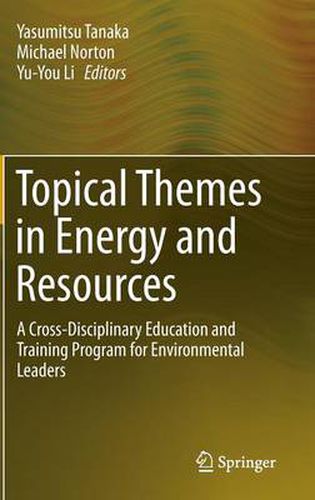Readings Newsletter
Become a Readings Member to make your shopping experience even easier.
Sign in or sign up for free!
You’re not far away from qualifying for FREE standard shipping within Australia
You’ve qualified for FREE standard shipping within Australia
The cart is loading…






This title is printed to order. This book may have been self-published. If so, we cannot guarantee the quality of the content. In the main most books will have gone through the editing process however some may not. We therefore suggest that you be aware of this before ordering this book. If in doubt check either the author or publisher’s details as we are unable to accept any returns unless they are faulty. Please contact us if you have any questions.
This book combines issues several critical ones in the energy field (low-energy technologies, renewable energies such as the hydrogen economy, and geothermal energy).
Moving towards a more sustainable world requires a complete revolution in the way we manage energy and resources. However, from an academic perspective, this theme is so broad that most educators and researchers tend to focus on just one aspect, and maintaining the broad viewpoint which is necessary for making strategic judgments becomes difficult. Tohoku University addressed this challenge when developing a new education and training program for environmental leaders and brought together the extensive range of expertise available in specific fields into one special course which forms the basis of this book. Now in one volume, both students and educators can be brought up to date on a wide range of critical issues currently being addressed in the field of energy and resources. Chapters on resources include availability (for instance, rare earth metals), extraction and recycling of metals and plastics, and technological solutions to specific waste-disposal problems. In addition, broader strategic issues such as limits to growth and the interaction between the economic system and environmental issues are addressed. Even though each chapter provides topical data and knowledge from disparate and specialized fields, the book is written at a level that is readily understandable by students from all scientific, engineering, and humanities fields.
$9.00 standard shipping within Australia
FREE standard shipping within Australia for orders over $100.00
Express & International shipping calculated at checkout
This title is printed to order. This book may have been self-published. If so, we cannot guarantee the quality of the content. In the main most books will have gone through the editing process however some may not. We therefore suggest that you be aware of this before ordering this book. If in doubt check either the author or publisher’s details as we are unable to accept any returns unless they are faulty. Please contact us if you have any questions.
This book combines issues several critical ones in the energy field (low-energy technologies, renewable energies such as the hydrogen economy, and geothermal energy).
Moving towards a more sustainable world requires a complete revolution in the way we manage energy and resources. However, from an academic perspective, this theme is so broad that most educators and researchers tend to focus on just one aspect, and maintaining the broad viewpoint which is necessary for making strategic judgments becomes difficult. Tohoku University addressed this challenge when developing a new education and training program for environmental leaders and brought together the extensive range of expertise available in specific fields into one special course which forms the basis of this book. Now in one volume, both students and educators can be brought up to date on a wide range of critical issues currently being addressed in the field of energy and resources. Chapters on resources include availability (for instance, rare earth metals), extraction and recycling of metals and plastics, and technological solutions to specific waste-disposal problems. In addition, broader strategic issues such as limits to growth and the interaction between the economic system and environmental issues are addressed. Even though each chapter provides topical data and knowledge from disparate and specialized fields, the book is written at a level that is readily understandable by students from all scientific, engineering, and humanities fields.